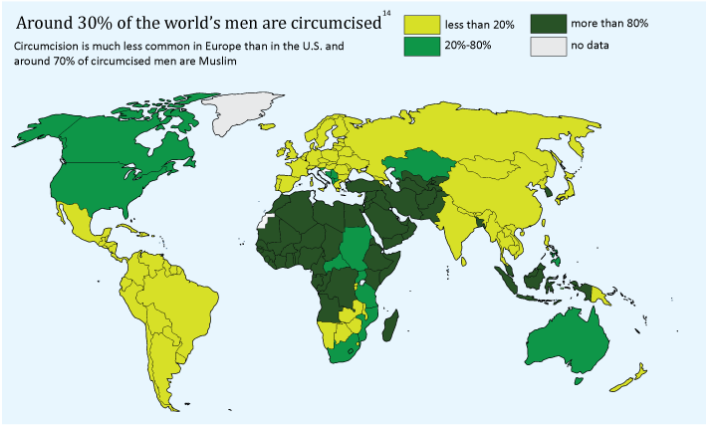
There is an increasing amount of health-related research for parents to consider when deciding whether to circumcise their son. However, the health differences between circumcised and uncircumcised boys are generally modest in the United States, so cultural and religious influences are likely to remain decisive. View the infographic below to find out more.
(Click to zoom)

2 Comments
Like many articles on circumcision this poster sidesteps ethics by assuming that since the act is performed by a doctor then it must be medical in nature, and therefore the only considerations are medical. This tautological approach does not serve the foreskin’s owner. This is evidenced by the only quote, which acknowledges that the procedure is optional, that parents (not doctors) can diagnose and prescribe it, but unlike other elective surgeries, the patient is not giving informed consent. In the end, ScienceLine, in lockstep with circumcision proponents, also denies the boy’s inalienable right to his body. If you don’t agree, before commenting, first test your thoughts by changing the gender and ask yourself if ScienceLine would promote female circumcision if they found medical articles to support it.
Just looking at those diagrams, it’s clear that circumcision is not cost-effective. Circumcising your child has a one in 68 chance of protecting him from HIV if he is black, one in 1200 if he is white (and no chance at all of protecting his partner if he has it). Circumcising a baby obviously offers him no protection from infection through receptive anal sex, the commonest means of transmission, or intravenous drug use, the next commonest.
You have given no information at all about the harms and risks of circumcision, which go all the way to loss of the penis and death, with lesser harms, such as sexual dysfunction and ugly outcomes much more common. These must not be ignored, but have to be balanced against any statistical benefits.
The role of medicine certainly IS to deny access to unnecessary reductive surgery performed on non-consenting people, and the medical profession is failing in its duty here.